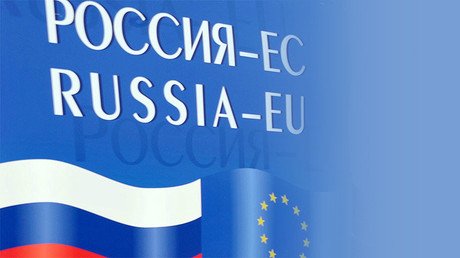Eurasian Economic Union on the move

On May 31, 2016, Presidents of Russia, Kazakhstan, Belarus, Armenia and Kyrgyzstan – members of the Supreme Eurasian Economic Council of the Eurasian Economic Union – met in Astana to mark the second anniversary of the signing of the EAEU Treaty.
The leaders of the EAEU member-states confirmed their commitment to building a closer relationship with the view of raising each other’s competitiveness and involvement in global economy.
The governments and businesses of the Eurasian Economic Union are now gaining experience in working together. Collaboration within the Union offers an opportunity to consolidate resources and create favorable conditions for joint economic development, while economic integration requires a higher level of mutual macroeconomic coordination.
Within this context great importance is attached to continuous implementation of the main macroeconomic goals set by the EAEU member-states for 2016–2017 and development of new effective mechanisms aimed at harnessing our joint economic potential. This helps the member-countries stabilize their economies and overcome the consequences of negative economic developments. The internal issues of our cooperation have been largely settled and regulated.
This year the EAEU countries will form a common market in the socially important area of drugs and healthcare products. They expect to build a common electricity market by 2019, which will provide the member-states with a $7bn GDP increase. A common hydrocarbons market is to be put in place by 2025, the cumulative effect of which may exceed $1bn for gas and $8bn for the oil industry. We are looking to harmonize legislation regulating construction and design, scientific research and tourism.
The EAEU gives a high priority to liaisons with other countries and important integration associations, including the Shanghai Cooperation Organization and ASEAN. The Union has a growing network of international contacts. Last year the EAEU signed its first free trade zone agreement with Vietnam. The Eurasian Commission has signed Memoranda of Understanding with the Governments of Mongolia, Peru and Chile, one with Serbia is to follow. Cooperation agreements with South Korea, Ecuador and MERCOSUR are also in the pipeline. We welcome the outline of a legal framework for cooperation with ASEAN member-states Cambodia and Singapore and similar documents (altogether more than twenty) signed with national governments and international organizations. Other countries that have expressed an interest in establishing closer ties with the EAEU include Egypt, India, Iran, and Israel.
At the same time, the EAEU has been looking into the possibility of developing trade and economic ties with the European Union. We believe that cooperation between the two integrations should be aimed at achieving common goals with regard to free movement of goods, labor, services and capital. This should contribute to building a common space from Lisbon to Vladivostok with no dividing lines. In this regard we welcome the recent statement by German Chancellor Angela Merkel in favor of the eventual creation of a common economic zone between Russia and the EU.
It is clear that the EAEU is gradually gaining ground as a modern economic integration project committed to cater for economic developmental needs of its member-countries and networking in a wider international environment.
The statements, views and opinions expressed in this column are solely those of the author and do not necessarily represent those of RT.














